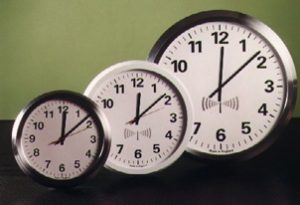When you tell somebody you’ll be an hour, ten minutes or a day, most people have a good idea how long they need to wait; however, not everybody has the same perception of time, and in fact, some people have no perception of time at all!
Scientists studying a newly discovered Amazonian tribe have found that they have no abstract concept of time, according to news reports.
The Amondawa, first contacted by the outside world in 1986, while recognising events occurring in time, do not recognise time as a separate concept, lacking the linguistic structures relating to time and space.
Not only do the Amondawa have no linguistic ability to describe time, but concepts like working throughout the night, would not be understood as time has no meaning to their lives.
While most of us in the western world tend to live by the clock, we all in fact have continuous different perceptions of time. Ever noticed how time flies when you’re having fun, or goes very slowly during times of boredom? Our time perceptions can vary greatly depending on the activities that we are undertaking.
Fighter pilots, Formula One drivers and other sportsmen often talk of “being in the zone” where time slows down. This is due to the intense concentration they are putting into their endeavours, slowing down their perceptions.
Regardless of out differing time perceptions, time itself can alter as Einstein’s Special Theory of Relativity demonstrated. Einstein suggested that gravity and intense speeds will alter time, with large planetary masses warping space-time slowing it down, while at very high speeds (close to the speed of light) space travellers could partake a journey that to observers would seem several thousands of years, but be just seconds to those travelling at such speeds.
And if Einstein’s theories seem far-fetched, it has been tested using ultra-precise atomic clocks. Atomic clocks on aeroplanes travelling around the Earth, or placed farther away from the Earth’s orbit, have minute differences to those remaining at sea-level or stationary on Earth.
Atomic clocks are useful tools for modern technologies and help to ensure that the global timescale, Universal Coordinated Time (UTC), is kept as accurate and true as possible. And you don’t need to own your own tomake sure your computer network is kept true to UTC and is hooked up to an atomic clock. NTP time servers enable all sorts of technologies to receive an atomic clock signal and keep as accurate as possible. You can even buy atomic clock wall clocks that can provide you the precise time no matter how much the day is “dragging” or “flying”.




